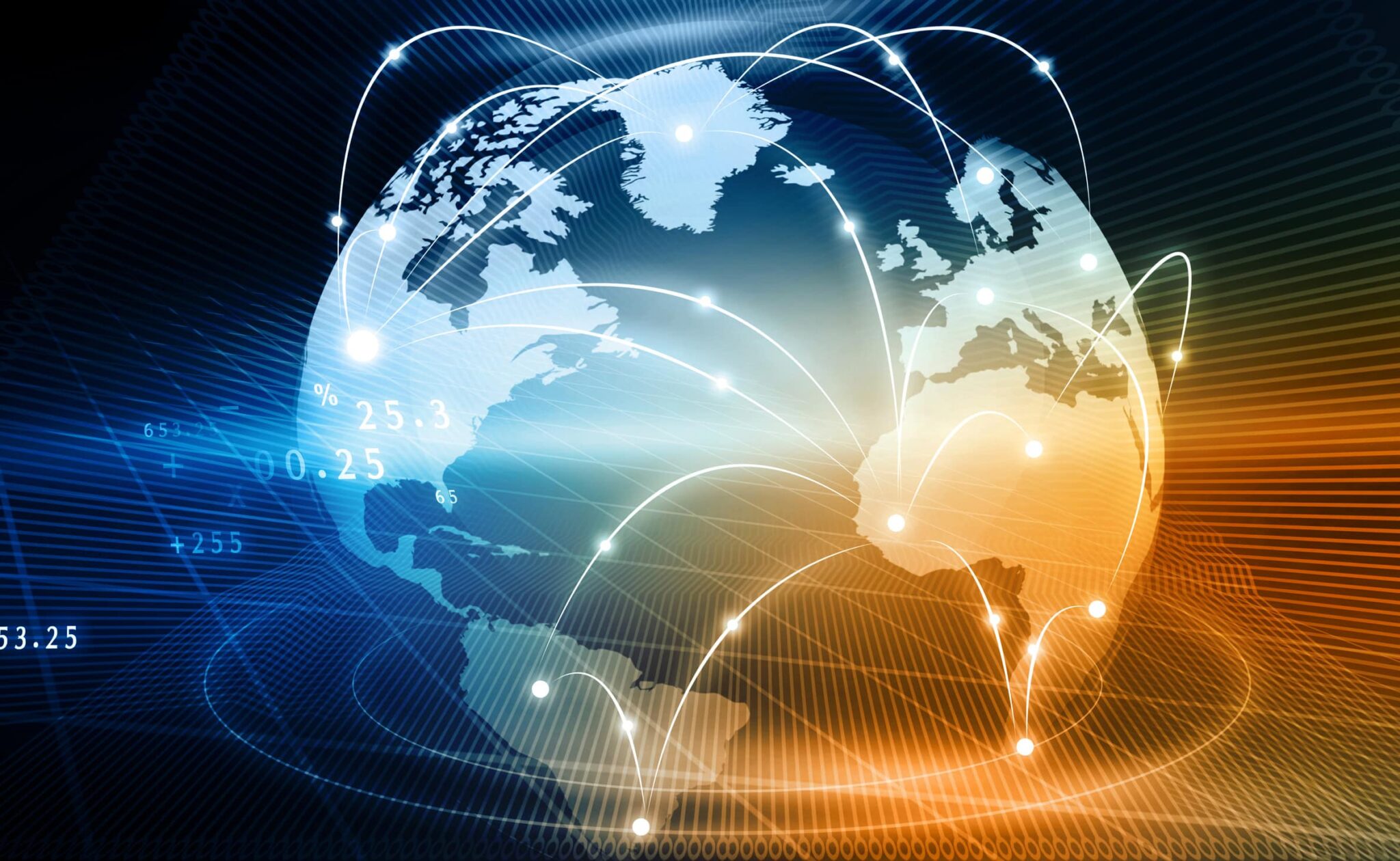I realize now what a stupid idea it was, but at the time it seemed appealing. It was my youngest daughter’s brainstorm: To mark the advent of 2000, she said, we should all go up to the highest hill in the city and see the first sunrise of the new millennium. So the whole family rolled out of bed at a disgustingly early hour on the morning of January 1, 2000, and set off to Primrose Hill to watch rosy-fingered dawn make her 21st-century debut.
This was stupid because we happen to live in London. A January morning in foggy London town is just about guaranteed to be cold, wet and far too cloudy to see the sun. And so it was on January 1, 2000. We spent a miserable hour huddled beneath our dripping umbrellas on the windy hilltop. When the “sunrise ” came, we saw nothing more than a faint glow somewhere behind the cloud cover. Finally we raced back home, cooked up some hot chocolate and flicked on the tube.
And then we saw something that was worth getting up for at the crack of dawn. The BBC, at that early hour of New Year’s Day, was running film clips from around the world showing how people everywhere had celebrated the night before. Pope John Paul II, looking full of spirit and energy, marked the millennium in St. Peter’s Square. A Scotsman in a green tartan kilt tweedled his bagpipe from the roof of Edinburgh Castle.
A bare-chested Samoan blared a conch shell on the beach. A Native American danced in feathered headdress. Thousands of couples in evening dress waltzed across the plaza in front of Vienna’s town hall. At the easternmost point of New Zealand, Kiri Te Kanawa sang a Maorikaranga. On the biggest stage in Tokyo, Suizenji Kyoko spun in her kimono as she belted out “The Light of the Firefly, ” Japan’s homegrown version of “Auld Lang Syne. “
I was totally fascinated not only because these New Year’s Eve parties were so colorful, but also because they were so varied and so local. That’s not what we’re supposed to be seeing, after all, in the 21st century. According to all the leading experts, we have entered the era of globalization. Nobody has yet produced a clear definition of this increasingly common term, but globalization seems to have both cultural and commercial meanings.
The notion of “cultural globalization ” evokes the emergence of a shared global mass culture in which billions of people on every continent wear the same Nikes, eat the same Big Macs, sing along to the same Madonna hit, laugh at the same episodes of Friends, surf the same Web sites and shoot for the high score on the same PlayStation games. In a business sense, “globalization ” refers to the worldwide business empires formed by multinational corporations like Microsoft, Monsanto, McDonald’s and ExxonMobil.
It’s Good and Bad
Globalization, though, is more than the flow of money and commodities, according to theHuman Development Report 1999, commissioned by the United Nations Development Programme. “It is the growing interdependence of the world’s people through ‘shrinking space, shrinking time and disappearing borders.’ ” In the report, which states that globalization offers people opportunities to enhance their lives and create a global community based on shared values, mention is made of markets which have been allowed to dominate the process.
Whatever it means, globalization is clearly a threatening concept to many people. When the World Trade Organization met in Seattle in 1999, tens of thousands of demonstrators mobbed the streets to protest against global corporations, global organizations and global trade rules. Similar protests, some violent, broke out in several European capitals. When business and governmental leaders from around the world met in January 2000 for the World Economic Forum in Davos, Switzerland, the demonstrators were back again, smashing the windows at the local McDonald’s and emptying Coke bottles in the street to demonstrate their disgust with “globalization. “
They were at it again at the U.S. political conventions last summer and in Cincinnati, Ohio, in November 2000. Of course, the news footage showed a lot of these demonstrators wearing the same Nike shoes and sipping the same Starbucks coffee that they were supposedly protesting against but you can’t demand too much consistency from a rioting mob.
Cultural Fusion
In a sense, the single global culture that some people fear has been coming for a long time. More than 30 years ago, the visionary Marshall McLuhan predicted that TV, movies and new technologies would join all the far-flung corners of the planet into a single “global village. ” In the 1960s, the McCluhan notion was an intriguing prediction. Today, it seems to many people to be a disturbing reality.
As any traveler can tell you, there’s evidence to support the notion that our varied world is becoming monocultural. I have taken several extended trips to far corners of the world in recent years, and I’ve seen signs of this spreading global culture almost everywhere.
In any hotel room in any country, I hear the same CNN or BBC announcers reading the news. At any newsstand in any city, I can buyTime and Newsweek, Vogue and Marie Claire. In any convenience store or trading post, I see Pok mon key chains.
On a visit to Tioman, a palm-fringed island off the east coast of Malaysia, I saw a group of Islamic women with bright scarves around their heads dancing on the beach. I raced over to get a closer look at this colorful piece of Southeast Asian tradition and realized that these Malaysians were dancing the macarena, originated by a Spanish flamenco duo.
On the north shore of ink-blue Lake Kivu, in the Democratic Republic of the Congo, I posed for a photo with a local tribal chief. To mark the occasion, he put on his best shirt: a Chicago Bulls T-shirt with Michael Jordan’s number.
Personally, I find such moments charming rather than depressing. But whether you like or loathe them, this kind of cultural fusion is frankly inevitable in a world where TV, radio, movies and the Internet reach almost every city, village and palm-fringed Pacific island. As President Bill Clinton said in his final State of the Union address in 2000, “Globalization is the central reality of our time. ” That makes those demonstrations in Seattle seem futile.
The ponytailed, pierced-body protester marching in the streets to stop globalization is the modern equivalent of King Canute at the oceanfront trying to stop the incoming tide.
Corporate Takeover?
Still, I think I understand why the protesters see the march of globalization as a force to be resisted. For one thing, the globalization of culture is seen as the twin sister of the globalization of commerce.
This is a scary prospect to a lot of people. They fear that important aspects of daily life are falling under the control of borderless, monopolistic mega-corporations with no particular loyalty to any country or any person, except the shareholders. We now have to rely on huge, faceless industrial conglomerates for essential elements of life: food, medicine, communications, transportation, finance, etc. Even the news media tend to belong to multinational corporate behemoths these days. Can we trust what they are telling us?
This innate fear of big multinational corporations is a key reason for the increasingly hostile reaction to the new genetically modified seeds that biotech companies are developing for farmers around the world. By using modern gene-splicing techniques, molecular biologists can produce new varieties of crops much faster 10 or 20 years faster than would be possible under traditional methods of hybridization.
The available genetic hybrids (they’re known by the shorthand “GMOs, ” or “genetically modified organisms “) already produce more food per acre than traditional hybrid seeds. They use less irrigation water and smaller amounts of chemical pesticides. In the laboratory, biologists are developing dramatic new species of crops: rice with twice as many vitamins per serving, beans containing a chemical that may treat hemophilia.
You would think that most people would welcome these advances, with their potential to feed the hungry and cure the sick. Indeed, most Third World nations have eagerly embraced the GMO revolution. But the rich countries of Western Europe have banned or strictly limited the planting of new hybrids. The anti-GMO movement is spreading to the United States as well. During those noisy demonstrations in Seattle, hundreds of the anti-globalization protesters carried signs reading “No GMOs. “
Why? Many people fear that the new seeds pose a risk to human health or the environment. So far, at least, there’s no scientific evidence that this is so. Americans have been planting and eating GMOs for nearly two decades now, with no sign whatsoever of health or environmental harm. But this experience has not mollified the Europeans.
When I asked Michael Meacher, Britain’s environmental minister, why he doesn’t trust GMO crops, he replied, in essence, that he doesn’t trust the huge multinational companies that make them. “I’m not willing to risk the health of our nation on a bunch of studies put out by Monsanto, ” he said.
Anti-American Sentiment
Another element at work here is anti-Americanism. To many people, the emerging global monoculture from movies to music to Monsanto’s seeds and Microsoft’s Windows looks just like U.S. culture. That is, globalization is widely taken to be a synonym for Americanization.
Let’s face it most of the world has a love-hate attitude toward America. People everywhere admire a lot of things about the United States: our commitment to freedom, our ingenuity, our openness to ideas and immigrants from all over the world, our willingness to face up to national problems and deal with them.
But at the same time, there is resentment and jealousy over America’s unchallenged dominance as the world’s leading financial, political, military and cultural power. Americans living overseas can sense these mixed feelings when we see how our country is portrayed in the foreign media. The United States is described as a rich, successful, powerful country but one that is plagued with violence, drug abuse, racial tension and political corruption.
By the way, the common perception that creeping Americanization is taking over the whole world is not completely accurate. Some well-known aspects of contemporary world culture come from other countries. The Disney Company recently shut down its flagship store in Berlin because there wasn’t a big enough market for Mickey Mouse ears and Donald Duck blankets. Guess what happened: The shop was quickly turned into an “anime ” outlet that is, a store selling Japanese cartoon figures like Pok mon, Hello Kitty and Sailor Moon, which have passed Mickey and Donald in popularity.
In the world of sport, American passions like baseball and football are nowhere near as widespread as the British games: soccer, rugby and cricket. The most popular sports team on earth is the British soccer power Manchester United, with active fan clubs in 100 countries. Manchester United’s global popularity went even higher last year when the team’s great midfielder, David Beckham, married a woman named Victoria Adams, who is better known to pop music fans around the world as Posh Spice, one of the Spice Girls.
Of course, if you think of globalization as a pernicious force, it probably doesn’t matter where the pop icons come from. The problem is perceived to be a massive homogenization of music, clothing, language and leisure all over the world and a resulting loss of diversity, tradition and local color. The British essayist Polly Toynbee captured this dark view with her shorthand definition of cultural globalization: “the ugly spread of McDonald’s and Disney to beautiful, remote places. “
There’s one major problem with this theory that all the world’s local cultures are merging into a single globalized mush: It’s not true. As I saw on New Year’s morning, 2000, traditional local cultures are flourishing everywhere.
The irony of our wired-up, online, Starbuck’s-studded world is that it is less connected, and more varied in many ways than what we had before telephones, television and the World Wide Web. In the year 2001, our planet is more local, more varied and less unified than it was on the first day of 1900. At latest count, there were 188 sovereign nations on earth far more than ever before in history not to mention scores of independence movements hoping to carve out yet another rectangle on the globe. And each of the new nations is determined to protect and promote its traditional languages and cultures.
Relish the Differences
A century ago, huge swathes of world maps were colored pink, red or yellow, depicting the territory controlled by a few European colonial powers. Across the vast sweep of Asia and Africa, from Turkey to the China Sea, from Egypt to South Africa, hundreds of millions of people were subjects of the British queen. Britain and the other colonial powers imposed a uniformity of law, language, education and culture over vast stretches of our planet.
We tend to think of colonization as a relic of ancient history. In fact, European colonial rule around the world continued for half of the 20th century. It was only in the 1950s and ’60s that most of Asia and Africa won independence from European colonial rule. And not until December 20, 1999, did Portugal finally give up the last vestige of European rule in Asia, the tiny state of Macao, on China’s Pearl River delta.
Today, the old patterns of political dominance have given way to a more complex, geopolitical reality. The world today is a world of cultural and political variety. The people and institutions that are genuinely “globalized ” are those that accept and relish this world of difference.
One of the worldwide institutions that has done the best job of adapting is the Roman Catholic Church. You only have to see a meeting of the College of Cardinals, with its lively mix of races, colors and languages, to understand how the traditional Church has embraced cultural variety while holding firmly to its core of universal truth.
It may be that we live in a “global village ” but it’s a village with one heck of a lot of ethnic neighborhoods. Accordingly, I’d argue that we need a new definition of “globalization. “
The “central reality of our time ” is not so much that the whole world is embracing an American-based monoculture. Rather, “globalization ” is the process by which Americans and everybody else are coming to understand, appreciate and learn from the rich cultural diversity and heritage of the six billion residents of our globe. We had a glimpse of that as sunrise 2000 was celebrated around the world.








